Abstract
Data from surveys of the elderly are used by policy analysts to design health services programs. Consequently, the quality of survey data on elderly respondents has important implications for this growing segment of society: improving the quality of data should result in more cost effective programs for the elderly. However, studies suggest that the quality of responses from the elderly may be less than that for other respondents. Moreover, the increasing needs of policy analysts and health researchers for data have resulted in more complex survey questions that place a high cognitive burden on respondents. New methods for improving the design of these questionnaires are needed. This project investigated whether new techniques of questionnaire design, adapted from the theories and methods of cognitive psychology, could be effectively used in interviewing older respondents. The techniques used in this study, concurrent think-aloud interviews with followup probe questions, have been shown recently to be effective with younger respondents. Problems that elderly respondents have in comprehending survey questions, retrieving relevant information from memory, and using decision processes to estimate and provide answers were investigated. Questions on functional ability and social support were taken from the 1984 Supplement on Aging to the National Health Interview Survey. Analysis of respondents' think-aloud protocols and responses to probes suggest that the cognitive interview procedures were effective in identifying problems with the survey questions that would result in data of poorer quality and in suggesting the wording of questions that would be likely to result in answers of greater validity and reliability. Implications of these results for survey design and validation studies are discussed.
Full text
PDF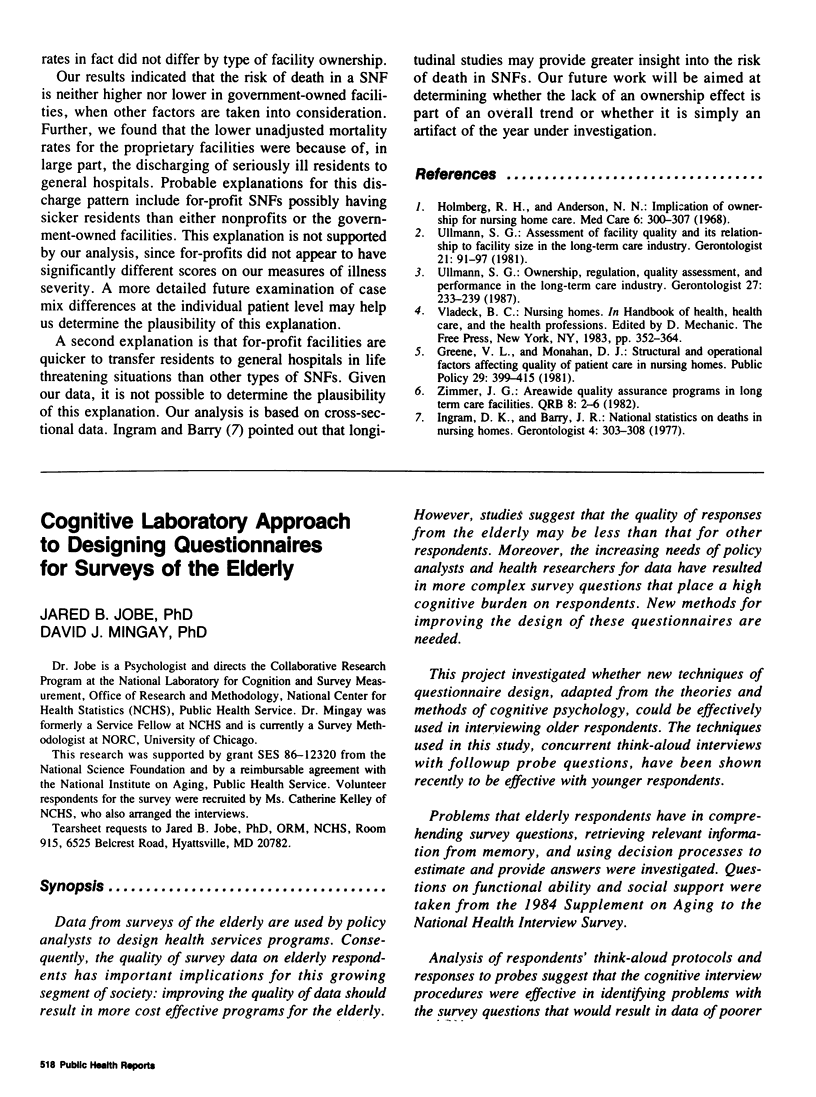
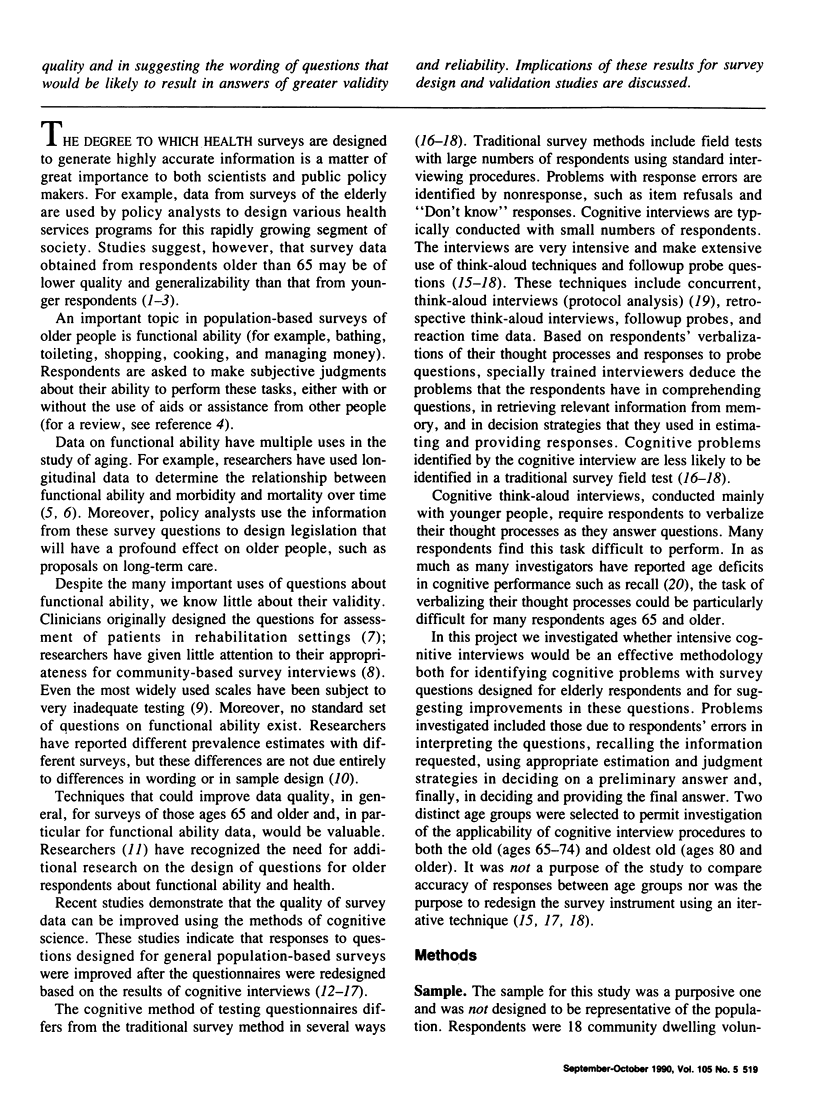
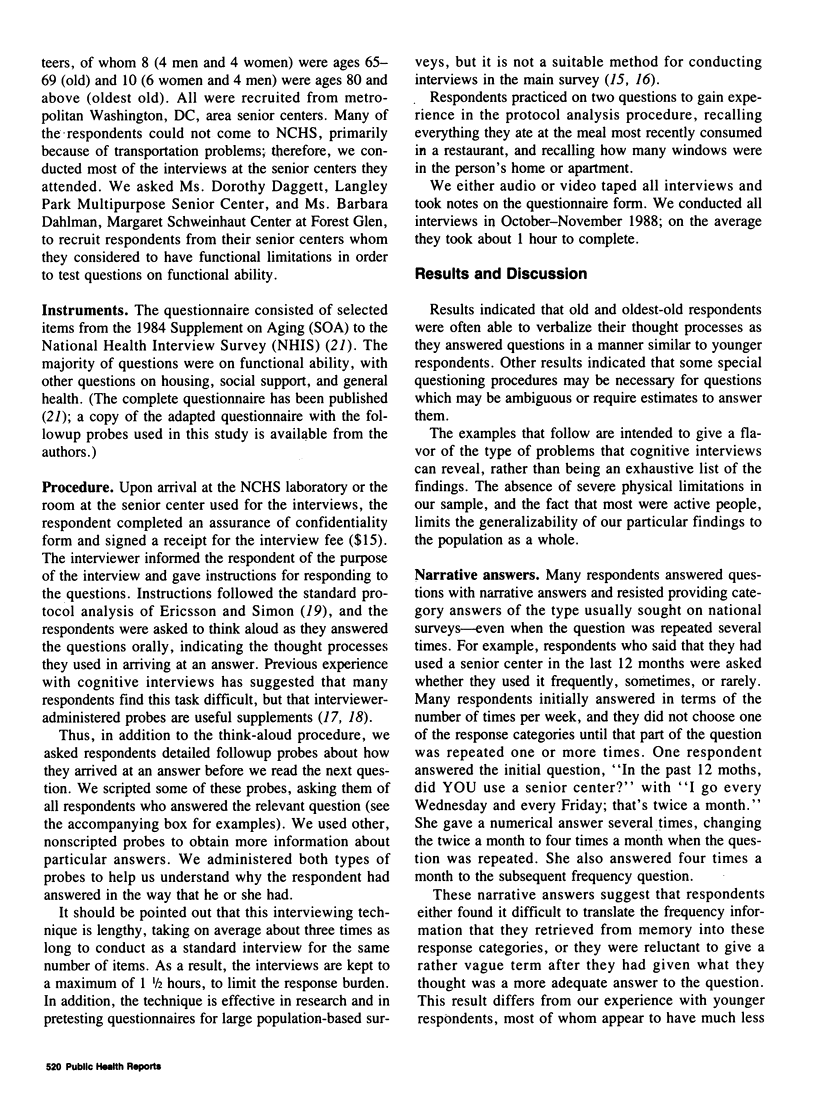
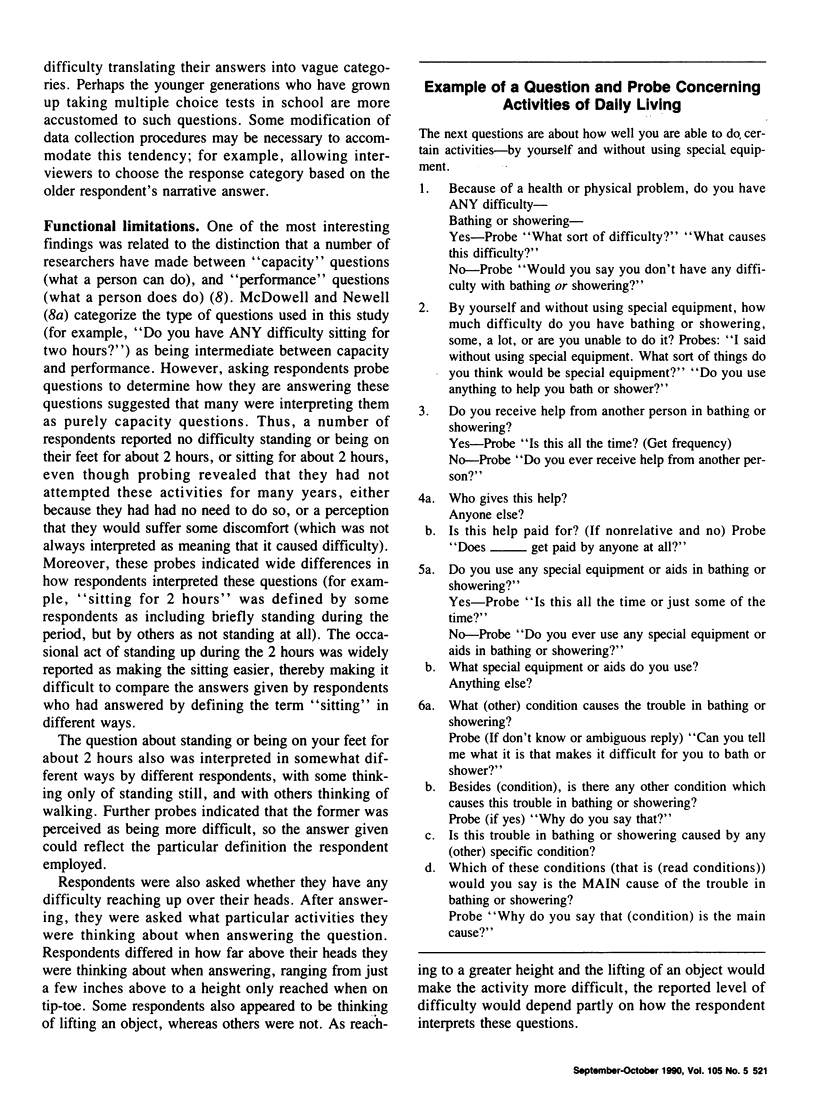
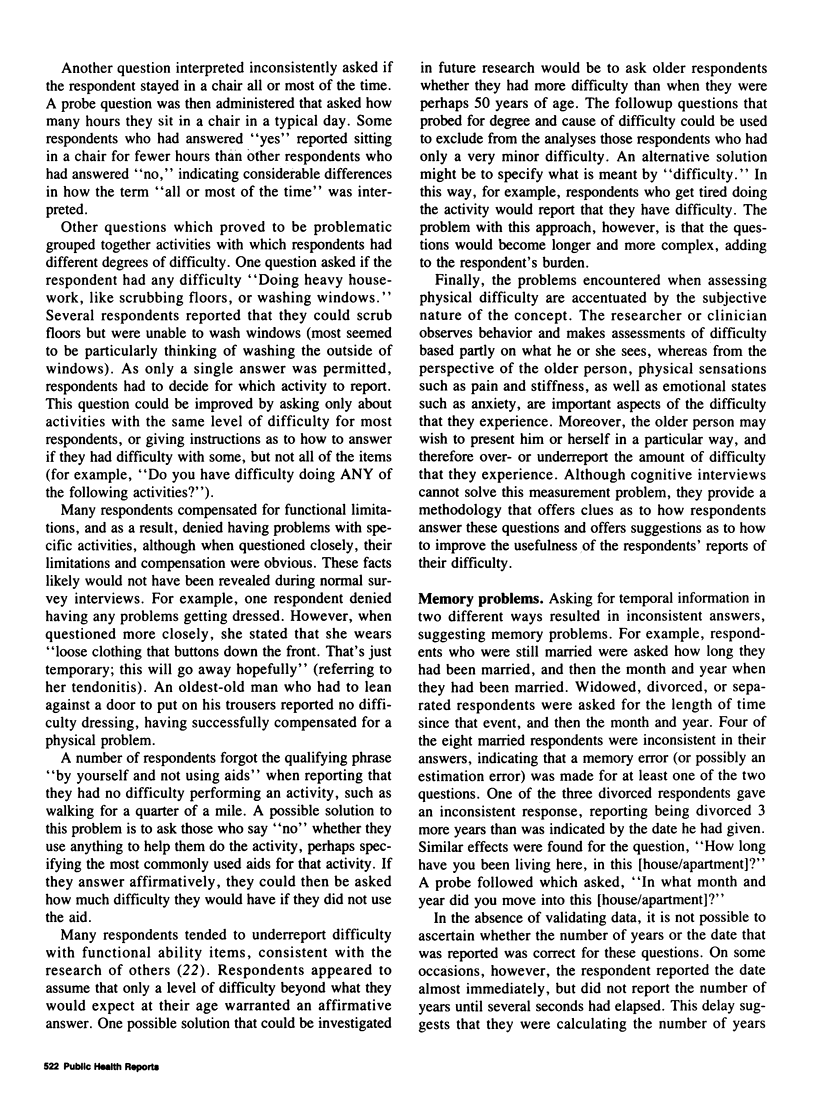
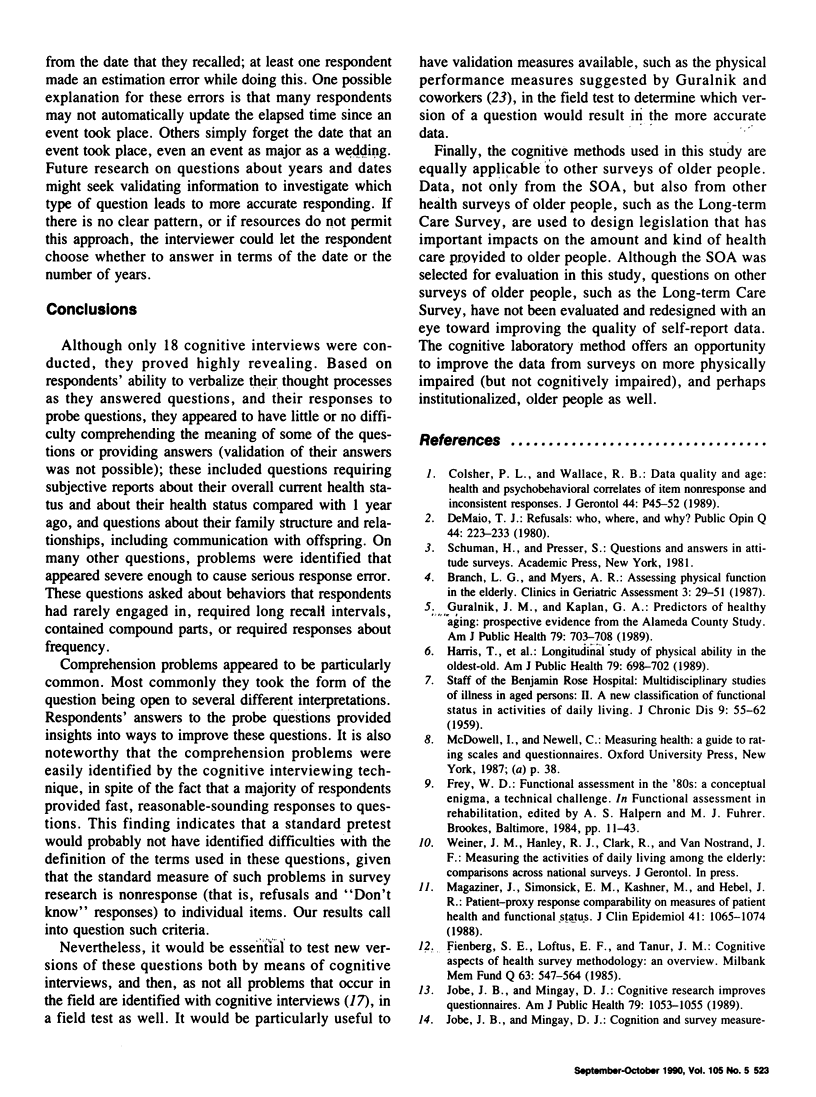
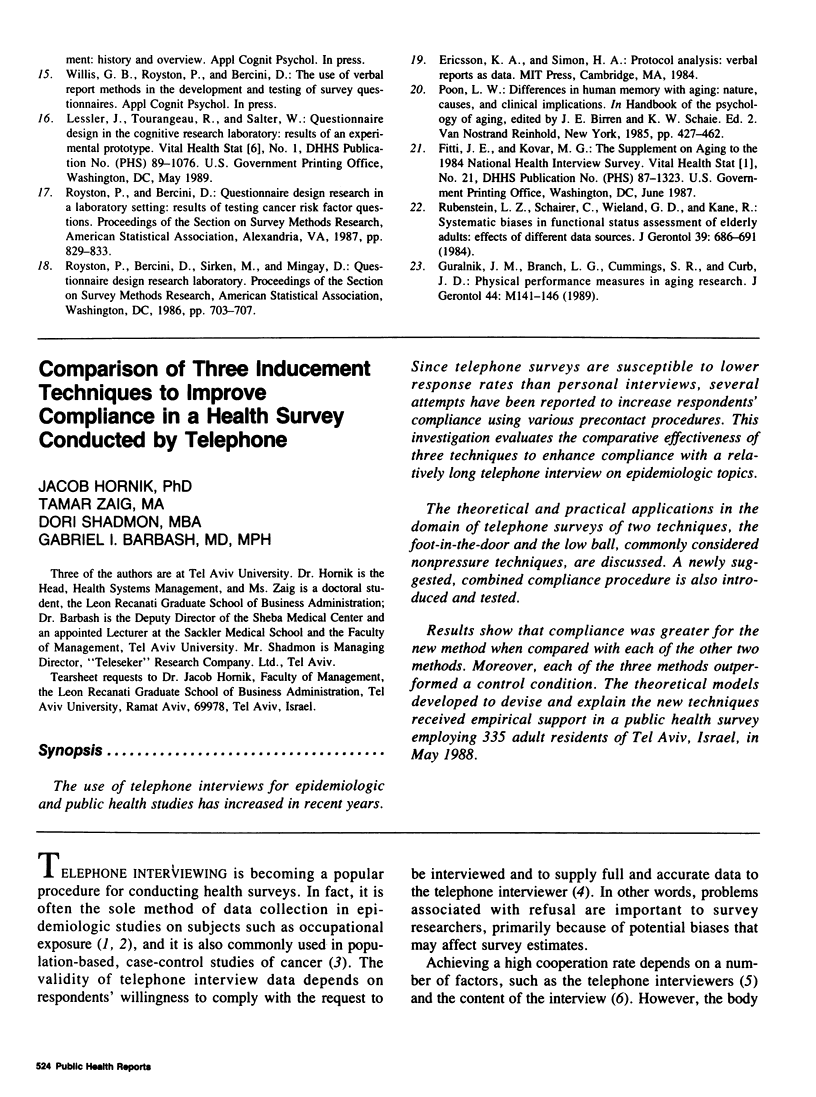
Selected References
These references are in PubMed. This may not be the complete list of references from this article.
- Branch L. G., Meyers A. R. Assessing physical function in the elderly. Clin Geriatr Med. 1987 Feb;3(1):29–51. [PubMed] [Google Scholar]
- Fienberg S. E., Loftus E. F., Tanur J. M. Cognitive aspects of health survey methodology: an overview. Milbank Mem Fund Q Health Soc. 1985 Summer;63(3):547–564. [PubMed] [Google Scholar]
- Guralnik J. M., Branch L. G., Cummings S. R., Curb J. D. Physical performance measures in aging research. J Gerontol. 1989 Sep;44(5):M141–M146. doi: 10.1093/geronj/44.5.m141. [DOI] [PubMed] [Google Scholar]
- Guralnik J. M., Kaplan G. A. Predictors of healthy aging: prospective evidence from the Alameda County study. Am J Public Health. 1989 Jun;79(6):703–708. doi: 10.2105/ajph.79.6.703. [DOI] [PMC free article] [PubMed] [Google Scholar]
- Harris T., Kovar M. G., Suzman R., Kleinman J. C., Feldman J. J. Longitudinal study of physical ability in the oldest-old. Am J Public Health. 1989 Jun;79(6):698–702. doi: 10.2105/ajph.79.6.698. [DOI] [PMC free article] [PubMed] [Google Scholar]
- Jobe J. B., Mingay D. J. Cognitive research improves questionnaires. Am J Public Health. 1989 Aug;79(8):1053–1055. doi: 10.2105/ajph.79.8.1053. [DOI] [PMC free article] [PubMed] [Google Scholar]
- Magaziner J., Simonsick E. M., Kashner T. M., Hebel J. R. Patient-proxy response comparability on measures of patient health and functional status. J Clin Epidemiol. 1988;41(11):1065–1074. doi: 10.1016/0895-4356(88)90076-5. [DOI] [PubMed] [Google Scholar]
- Rubenstein L. Z., Schairer C., Wieland G. D., Kane R. Systematic biases in functional status assessment of elderly adults: effects of different data sources. J Gerontol. 1984 Nov;39(6):686–691. doi: 10.1093/geronj/39.6.686. [DOI] [PubMed] [Google Scholar]


